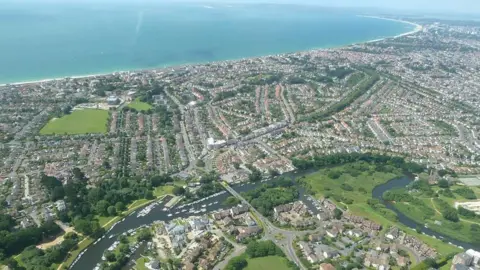Christchurch submits alternative to Dorset council merger
 BBC
BBCA council has submitted its own plan for the restructuring of Dorset's local authorities to the government.
Residents in Christchurch voted in a referendum last month against plans to merge Dorset's nine councils into two unitary authorities.
All other local authorities have already agreed to the proposals.
Christchurch Borough Council has written to Secretary of State for Local Government with what it calls a "workable alternative".
It said saving targets could be met through extending the sharing of services between councils.
Sajid Javid previously said he was "minded to" approve the Future Dorset plans under which Dorset County Council would cease to exist and Bournemouth, Poole and Christchurch would merge.
A second authority would also be formed from the more rural councils of East Dorset, North Dorset, Purbeck, Weymouth and Portland, and West Dorset.
The reorganisation was proposed after it emerged the authorities had to make £200m of savings by 2019.
A referendum in Christchurch saw 84% vote against the Future Dorset plans.

Key points of Christchurch's alternative proposal
- Extend the Christchurch and East Dorset Partnership with another district or borough council
- Extend local authority trading companies for adult services using the model of the Tricuro company running day and residential care
- Set up a unitary authority encompassing Bournemouth and Poole to "maximise efficiencies"
- Develop "service based partnerships" between councils based on experiences of Dorset Waste Partnership in refuse collection and recycling.
- Total savings suggested: £29.9m

Christchurch Borough Council leader David Flagg said residents had "overwhelmingly" rejected an urban unitary council.
He added: "The implementation of our proposal, including maintaining the current two-tier structure, would still see the necessary savings achieved across local government in Dorset, whilst ensuring we maintain control of important factors such as housing allocation and planning."
A period of representations from the affected councils will run until 8 January when Parliament will have the final say.
